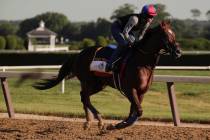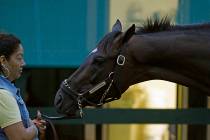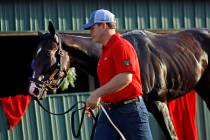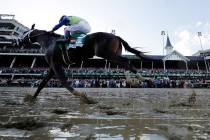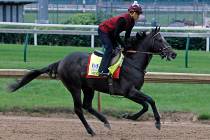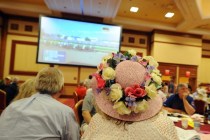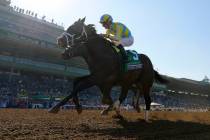Shortsighted industry honchos stifle innovation to protect turf
The horse racing industry has seen so many negative events in recent times that it's shellshocked into assuming the light at the end of the tunnel is an oncoming train. It has gotten to the point racing executives wouldn't know if the light may be pointing the way.
I'll offer two examples of how the industry will have to be dragged kicking and screaming to embrace a new product and technology -- even if it could introduce a new, younger generation to the sport.
The first is a launch of a new product by Leroy's Sportsbook that allows mobile wagering on a Blackberry. The Review-Journal covered this in Wednesday's business section.
Leroy's will offer sports betting first, then horse racing to follow within six months. The beauty of this for the racing industry is easy to see. Once the new application is fully vetted by the Nevada Gaming Control Board, it will have a gold seal of approval that the new distribution method is safe and secure.
The other is the introduction of language in California bill AB 2414 to explore the likelihood of exchange betting. Exchange betting is peer-to-peer betting with a lower takeout.
Santa Anita owner Frank Stronach has been stumping for deregulation and free enterprise in horse racing. Thus, it's ironic that when free enterprise works to introduce exchange betting, Stronach is 100 percent against it. Frank, you can't have it both ways.
The bill includes a 20-month period to fully evaluate exchange betting, including the amount of revenue to max out the benefits to California horse racing. The main opponents are Churchill Downs and Magna, which own advance deposit wagering companies. Their ADWs could be negatively impacted by exchange betting.
This scenario reminds me of the U.S. auto industry some 40 years ago. Detroit automakers wanted to keep out foreign cars such as Volkswagen, Honda and Toyota to protect their market share. It stifled free enterprise, even if the new products were better and more in line with what consumers wanted.
Using Stronach's argument, let the customers decide whether they like the old or new betting products. If anything, it will force the old pari-mutuel wagering options to be retooled.
A good example of that is Delaware Park offering an exacta rebate to on-track customers. The track is using common sense in rewarding horseplayers for attending the races. A second premise is that lowering the takeout is good for business, yet few in racing are willing to do it.
Richard Eng's horse racing column is published Friday in the Las Vegas Review-Journal. He can be reached at rich_eng@hotmail.com.








